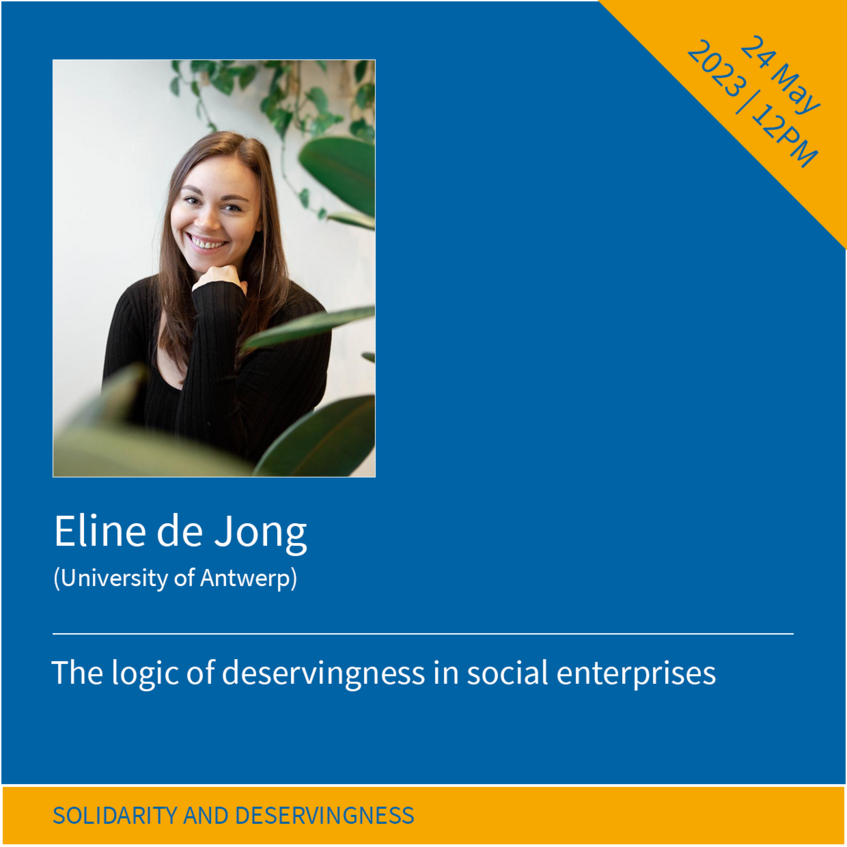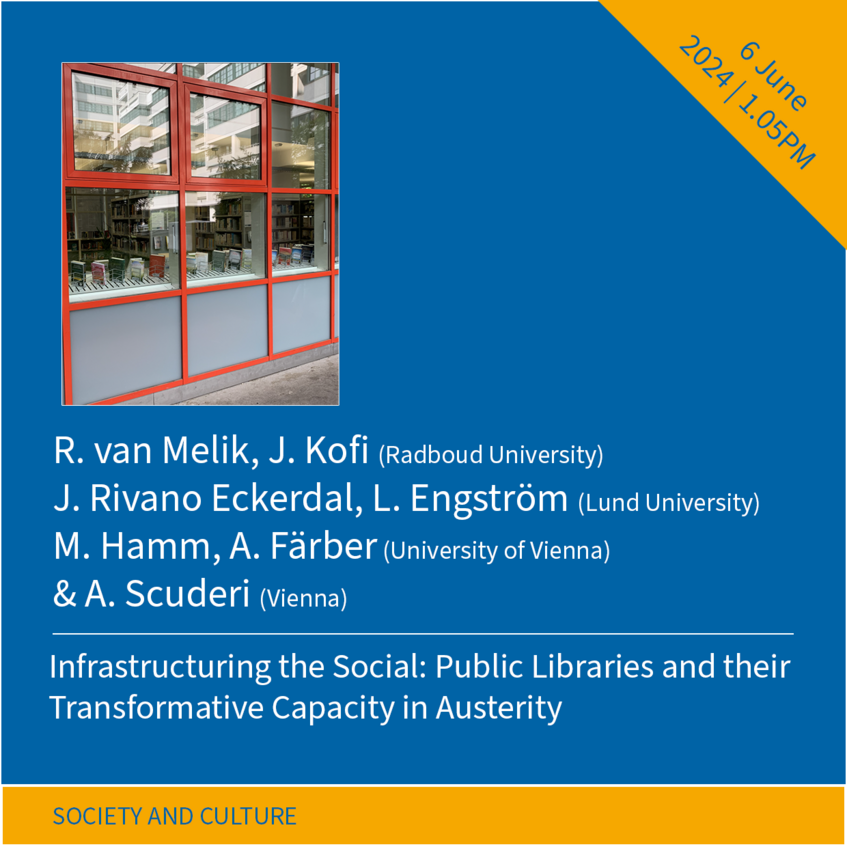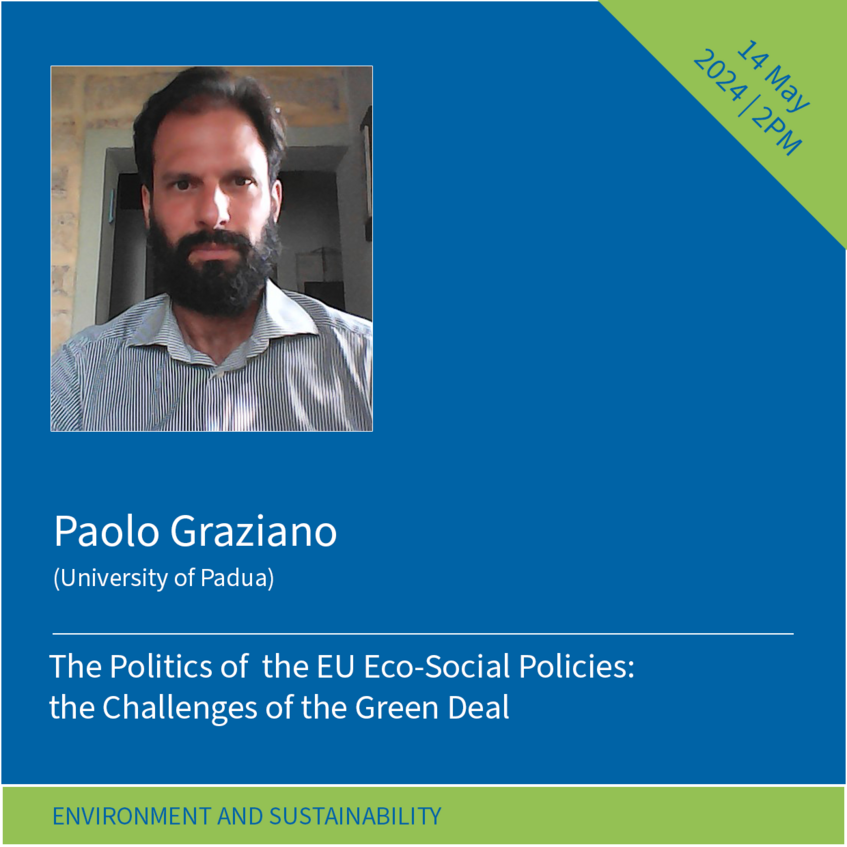Brown Bag Lunch
Urban Futures is organizing Brown Bag Lunch seminars on a monthly basis, where young scholars affiliated with the research platform's activities present their work in progress. These in person seminars stimulate scholary exchange of ideas through its more informal and collegial format over lunch time.
Bring your own food and discuss with us!
In person attendance only!
Upcoming Events
BBL: Thursday, June 26th 2025 | 12:00pm - 1:30pm
Pierre Wenzel
Dakar – Capital of Concrete
26.06.2025, 12:00pm - 1:30pm | Conference room, 4th floor, Department of Sociology, Rooseveltplatz 2, 1090 Vienna
Concrete blocks, grey facades, bags of cement, unfinished buildings, walking through Dakar is walking through a grey city, dominated by concrete. More and more concrete is poured as the city is under construction. Pierre would like to ask a very simple question: Why has concrete become so central to understanding Dakar’s urban landscape?
Pierre Wenzel's contribution aims to ethnographically explore how urbanization, concretification, and capitalism are three interconnected processes that work hand in hand. They shape the city’s development and contribute to explaining the omnipresence of concrete. Tracing the capitalist history of concrete in Dakar, this presentation will draw on archival materials as well as stories from construction sites, quarries, and the historic cement plant.
How does concrete function as a materialization of capital’s Expansion in Dakar? Far from being just a necessity, he argues that the monopolistic presence of concrete in Dakar has become a “no-choice” outcome driven by global capitalist dynamics. Concrete’s Colonial history in Dakar reveals how the city has served as a “spatial fix” (Harvey) for the cement industry and how concrete has gradually become entangled with neoliberal values, reinforced by the state. In this way, concrete has turned into a key site of capital’s reproduction at the intersection of colonialism, extraction, exploitation, and accumulation.
Pierre Wenzel is a PhD candidate in the Department of Social and Cultural Anthropology at the University of Vienna. He graduated in urban governance at Sciences Po Bordeaux, focusing on African Cities in partnership with the international master degree at Sciences Po Paris “Governing the Large Metropolis”.
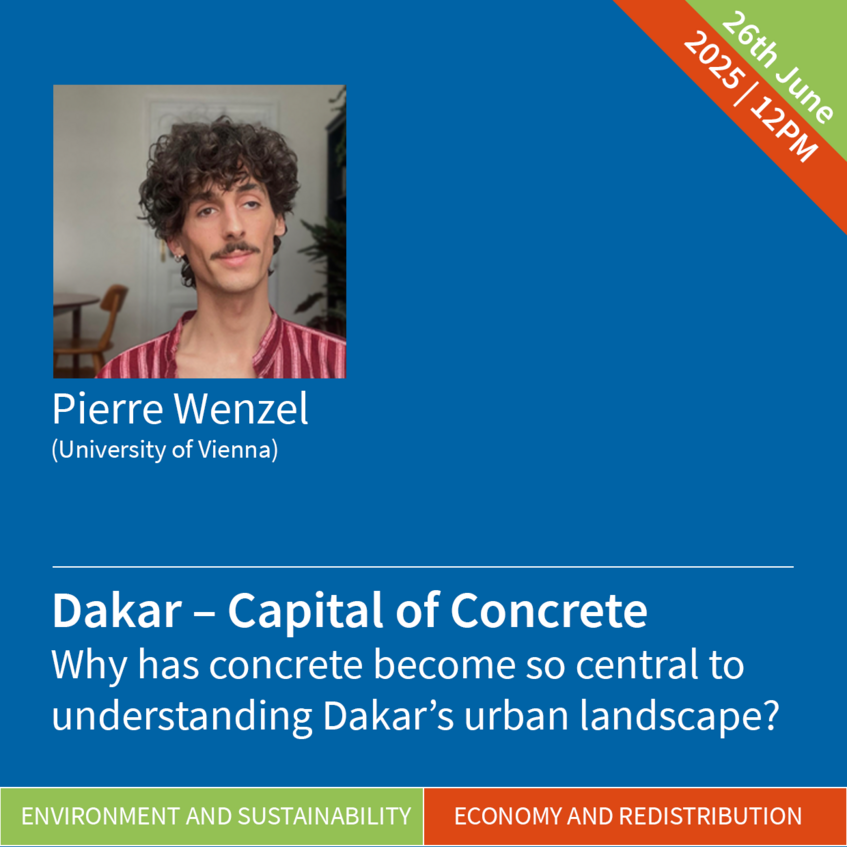
Past Events
BBL: Thursday, May 22nd 2025 | 12:00pm - 1:30pm
Job Zomerplaag
When Transitions Hit Home: The (Un)making of Publics in Domestic Heat Transitions
22.05.2025, 12:00pm - 1:30pm | C0424 Sitzungszimmer, Department of Social and Cultural Anthropology, NIG, 4th floor, Universitätsstraße 7, 1010 Vienna
While public engagement is widely promoted as essential for just energy transitions, critical gaps remain in understanding how publics are constituted, included, or excluded in practice. Drawing on his ongoing PhD project, Job Zomerplaag (Maastricht University/United Nations University – MERIT) will discuss this dynamic in the Dutch transition away from natural gas, focusing specifically on domestic heating.
The Netherlands has set an ambitious target to disconnect over 7 million homes from the gas grid by 2050. This massive undertaking is implemented through participatory neighbourhood-level processes, with municipalities in a "regierol" (orchestrating role) - tasked with developing transition visions, creating local implementation plans, and coordinating various stakeholders for home retrofit and heating system changes.
Through ethnographic fieldwork, narrative interviews, and document analysis in two contrasting communities, Job’s project investigates how publics emerge, dissolve, and reconfigure across material and institutional settings.
His research aims to advance critical debates in transitions studies by bringing concepts from STS and democratic theory into dialogue with empirical work on participatory processes.
Job's talk invites conversation on the infrastructural politics of urban sustainability transitions: What happens when citizens are expected to participate but lack the tools, scripts, or stages to do so? How might we design more inclusive participatory processes for just energy transitions?
Job Zomerplaag is a PhD researcher at Maastricht University’s Studio Europa and United Nations University-MERIT, currently visiting the Urban Futures Platform as a Fellow.
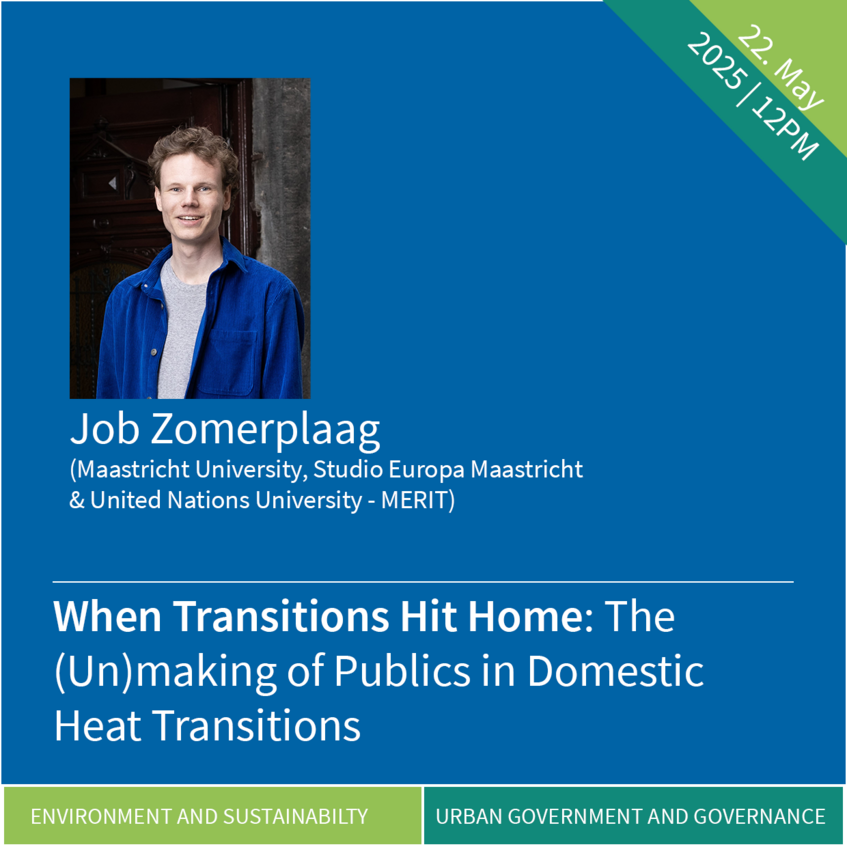
BBL: Monday, March 24 2025 - 12:00am - 1:30pm
Clelia Zardini
The role of Renewable Energy Communities (RECs) in advancing energy democracy and contributing to a just transition
24.03.2025, 12.00am-1.30pm
Clelia Zardini is a second-year PhD candidate at the University of Milan, Italy. Her research explores the role of Renewable Energy Communities (RECs) in advancing energy democracy and contributing to a just energy transition, with a focus on social provisioning through the common interest principle. By analyzing RECs as social actors, this study examines how these communities are created, including the conceptualization and definition of "community." Central to the analysis is the legal principle of common interest, which mandates public authorities to guarantee social and environmental services and rights. This research seeks to clarify the relationship between the common interest principle and the forms of social provisioning that RECs are entitled to offer, as enshrined in the EU directive RED II. Drawing on energy democracy and energy humanities as a theoretical framework, the methodology will be based on a multiple-case qualitative approach to uncover insights into this emerging phenomenon. The aim is to identify potential constraints and criticisms of RECs, offering a comprehensive view of their role in the broader context of energy justice and sustainable development.
Meeting Room 4th floor, Department of Sociology Rooseveltplatz 2, 1090 Vienna
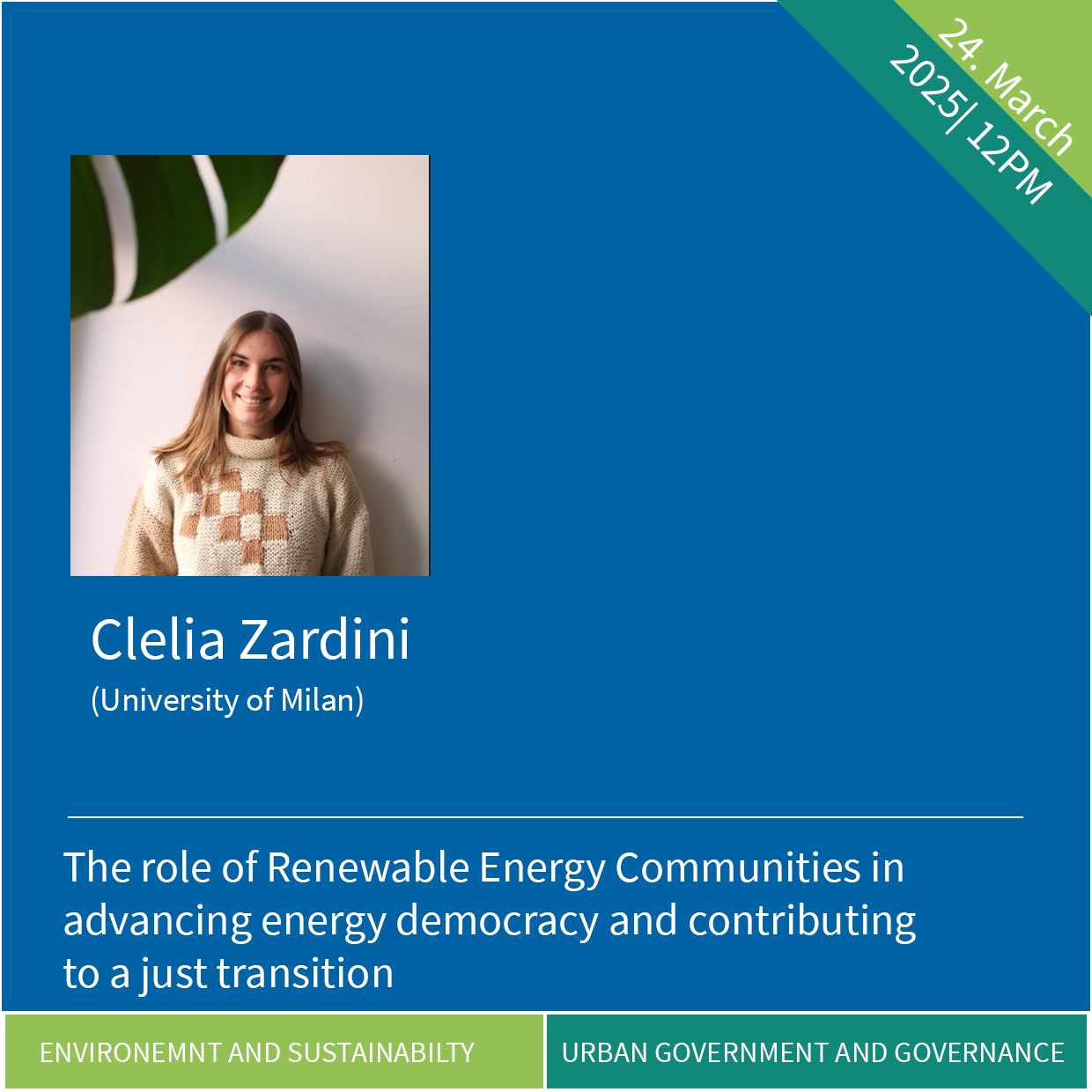
BBL: Wednesday December 11 - 12:00am-1:30pm
Petr Kodenko Kubala
Affordable Housing within "planetary boundaries"
11.12.2024, 12.00am-1.30pm
Petr Kodenko Kubala is a Visiting Scholar at the Institute of European Ethnology at the University of Vienna. His research draws on Actor-Network Theory and the urban assemblages approach, exploring housing affordability crisis, sustainable housing, and collaborative housing practices. The primary objective of the research is to advance the understanding of the relationship between housing affordability and environmental sustainability. This will be achieved through an empirical examination of the socio-material infrastructures of "new social housing" (and particularly collaborative housing) in Vienna, as well as through theoretical rethinking of the concept of "housing crisis" within the context of the Anthropocene. The talk will outline the framework, aims, methodology and theory of the research project, offering an opportunity to discuss over lunch its potential theoretical and empirical contributions to the field
Besprechungsraum 4. Stock, Institut für Soziologie, 1010 Wien

BBL: Wednesday November 27 - 1:00-2:30pm
Julia Wesely
Overlooked cities. Shifting the gaze in global urban studies
27.11.2024, 1.00-2.30pm
Julia Wesely is a Postdoctoral Fellow in the Urban Studies Research Group at the Department of Geography. Her research and teaching focuses on the intersections of environmental (in-)justice, learning and knowledge (co-) production in and across the urban global South and North.
There is growing scholarly attention to secondary and intermediary cities as their relevance for global urban development isincreasingly recognised. This talk examines debates on these cities through the notion of overlooked cities to understand how knowledge from such cities is produced and circulated in urban research and practice. Based on her work with the Overlooked Cities Collective, Julia illustrates how different people, places, and practices remain intentionally or unintentionally marginalised, off-the-map and under-theorised in global urban studies, and with what consequences.
Besprechungsraum 4. Stock, Institut für Soziologie, 1010 Wien
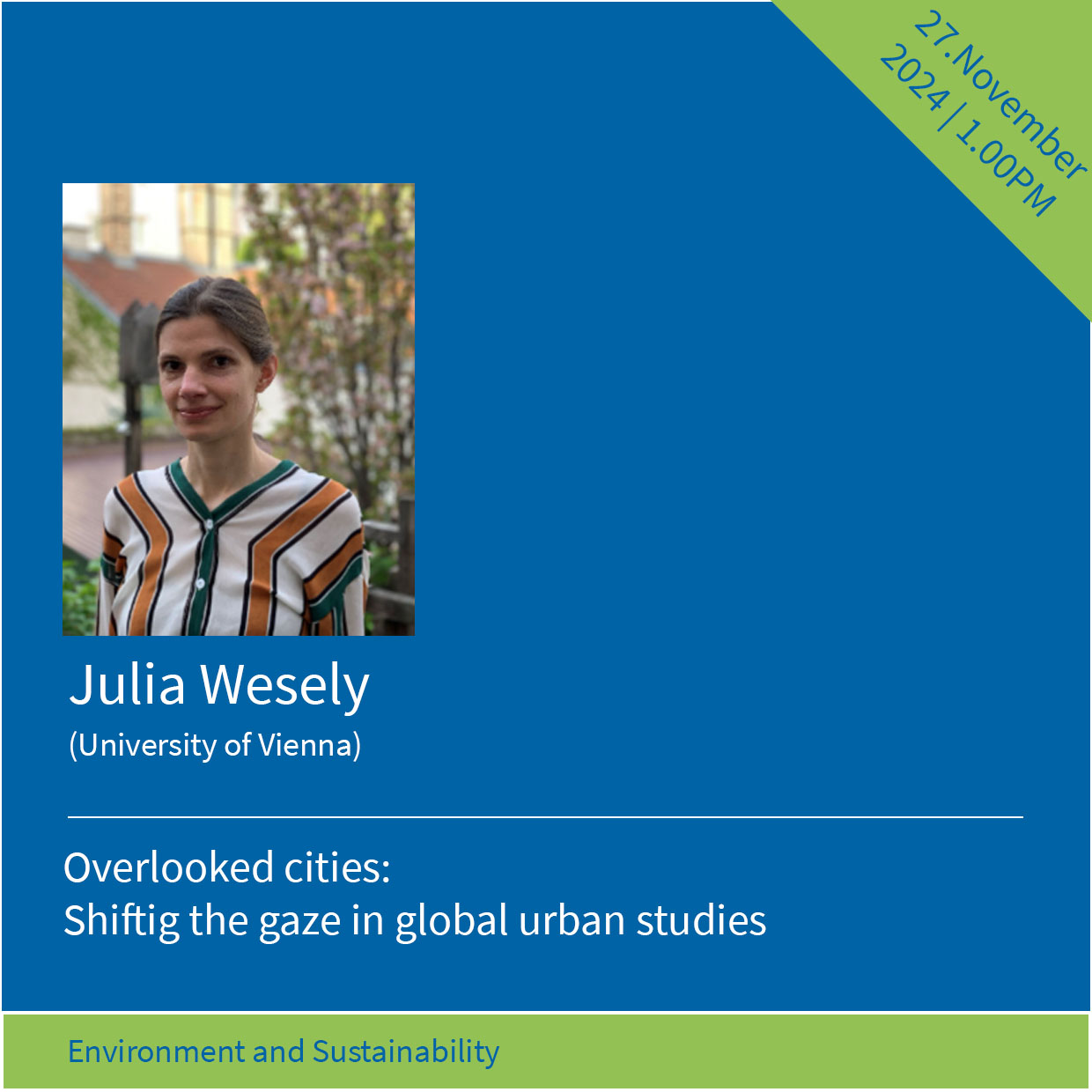
BBL: Wednesday, October 30 - 2:00-3:30pm
BBL: Thursday, June 6 - 1:05-2:35pm
Research Project ILIT
Infrastructuring the Social: Public Libraries and their Transformative Capacity in Austerity Urbanism
06.06.2024, 1.05-2.35pm
'Infrastructuring Libraries in Transformation’ (ILIT) is a research project funded through the JPI Urban Europe ‘ERA-NET Cofund Urban Transformation Capacities’ call which has received funding from the European Union’s Horizon 2020 research and innovation programme.
ILIT examines how public libraries in Rotterdam, Malmö and Vienna address systemic challenges in rapidly transforming societies. It unpacks libraries’ transformative capacities through the lens of ‘infrastructuring’ and ‘librarising’, with a keen eye on ways to address conflict between different views and positions productively. In this brown bag lunch the project partners would like to discuss their fresh research material on institutional support that aims at exploring the politics of library networks in each city.
Seminarraum H10, Rathausstraße 19 - 1010 Vienna
BBL: Tuesday, May 14
Paolo Graziano
The Politics of the EU-Eco-Social Policies: the Challenges of the Green Deal
14.05.2024, 2-3.30pm
Paolo Graziano is Professor of Political Science at the University of Padua and Incoming Scholar at Urban Futures.
Over the past years, phenomena such as the Gilets Jaunes in France or the ecological vs. social disputes in industrial sites (e.g. the ILVA steel plant in Taranto) have fueled the debate on ecological and social concerns. They revealed a trade-off in terms of potentially conflicting policies, requiring the understanding of their various underlying preferences. The talk addresses the following questions: did the European Union take an 'eco-social' path? If so, how and why? By adopting a post-functionalist approach, it analyses the growing intertwining of social and environmental policies at the EU level and tries to explain its genesis by focusing on the role of the actors involved. The main argument is that the European Commission, and in particular the President of the Commission, developed an eco-social agenda to strengthen legitimation.
Joint BBL: Thursday, April 23 1-3PM
Hannah Sommer
Legitimization of Exclusions: An Analysis of Discursive Strategies within the New Pact
Hannah Sommer is PhD candidate at the Research Platform The Challenges of Urban Futures at the University of Vienna.
The talk will give insights into theoretical and empirical research on the EU’s 2020 New Pact on Migration and Asylum, the reform proposals for the Common European Asylum System. Based on work-in progress the talk will focus on the question what legitimization strategies are used within the New Pact and how they manifest discursively.
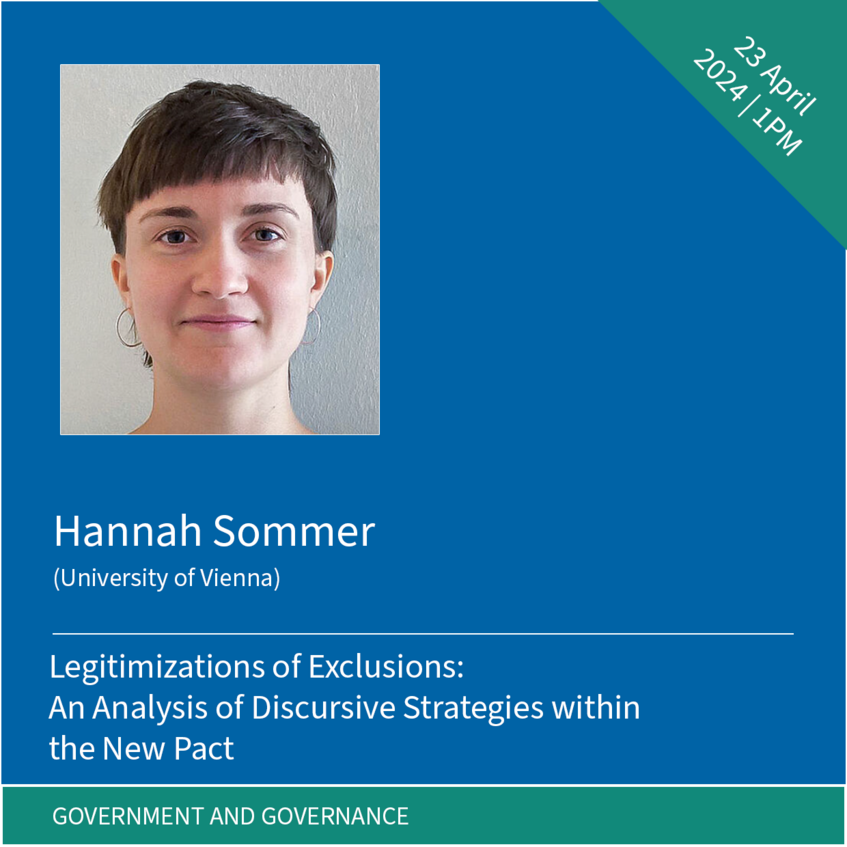
Adam Nemeth
Subjective well-being and social cohesion: Dynamic interplay in Vienna and Budapest
Adam Nemeth is post-doctoral Marie Skłodowska-Curie Fellow and Research Affiliate at Urban Futures.
The integration of newly arrived migrants is crucial for the rapidly diversifying metropolises in Europe. Initiatives tackling social exclusion and intergroup tensions have key importance to ensure a smooth integration process. The project aims at understanding the two-way relationship between social cohesion and subjective well-being in case of the foreign-born populations in Vienna and Budapest. This presentation will provide an overview of the project's conceptual framework and methodology. Finally, European patterns and the main SWB differences between the native-born and foreign-born population in Austria will be touched upon.
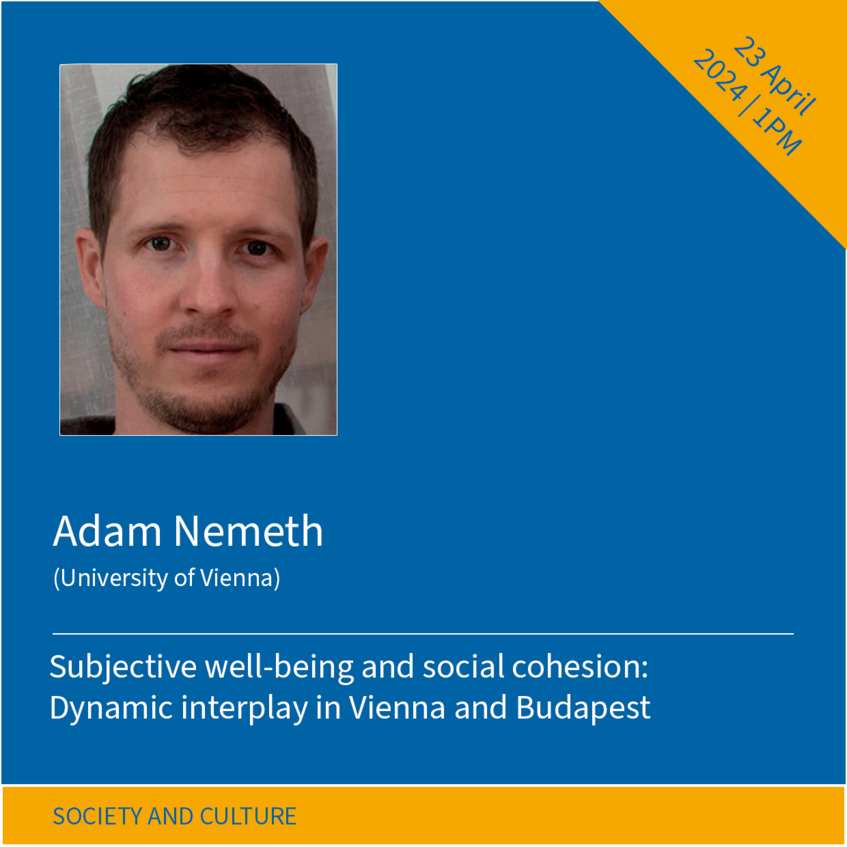
Joint BBL: Thursday, February 22 - 1:15-3pm
Jana Brandl
Making cities sustainable. Eco-social policy integration in European urban areas
Jana Brandl is PhD candidate at the Research Platform The Challenges of Urban Futures at the University of Vienna.
The talk will give insights into theoretical and empirical research on the interrelation of ecological and social sustainability, thereby stressing the need for integrated eco-social policies. Based on insights from the broader literature on policy integration, it argues for a processual understanding of eco-social policy integration and proposes an analytical framework to study the scale-specific governance modes and policy mixes applied to formulate and implement such policies, as well as the role policy actors play therein.
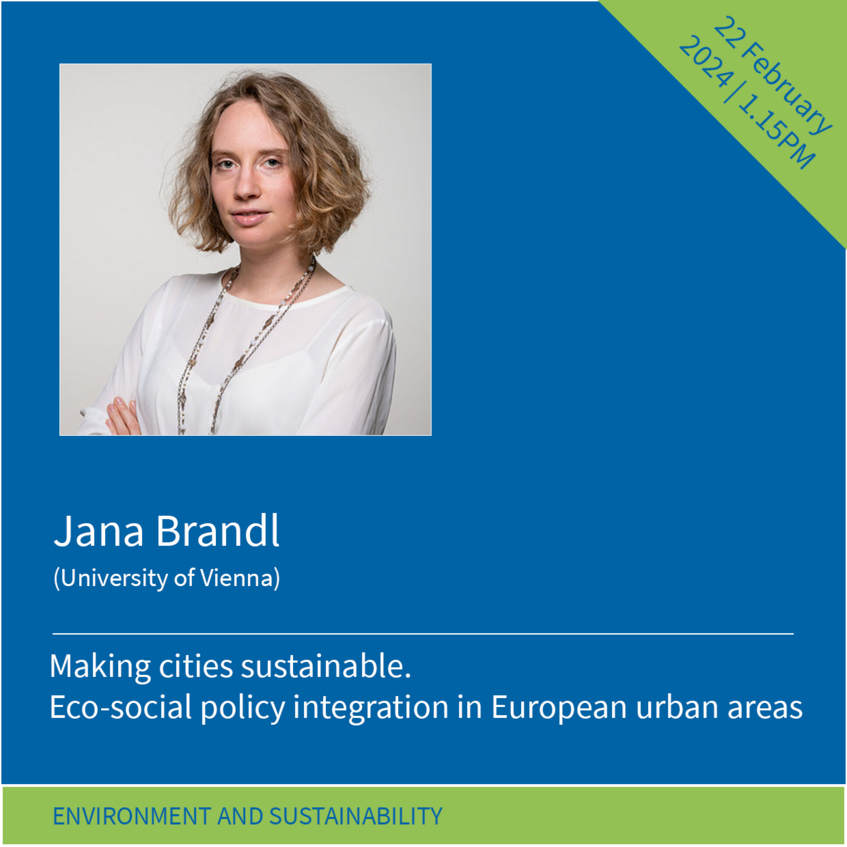
Laura Lotteraner
The Role of (Visual) Data Analysis in Environmental Pollution Research
Laura Lotteraner is PhD candidate at the Research Platform The Challenges of Urban Futures at the University of Vienna.
The talk will give insights into research at the intersection of environmental pollution science and data analysis. It presents case studies at different steps of the anthropogenic water system, discusses the collaboration between data scientists and pollution scientists and explores how the use of data can be improved in the field of environmental pollution.
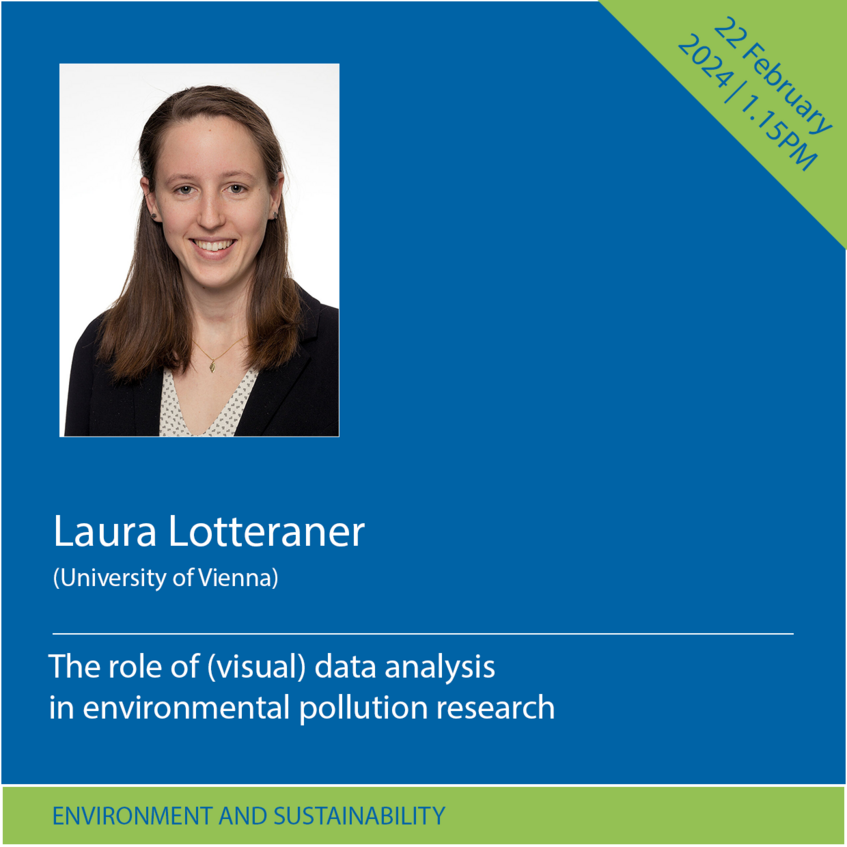
BBL: Tuesday, January 23
Arjin Tas
‘Risky Areas’ of Diyarbakir: Normalization of the use of counterinsurgency strategies in urban restructuring
23.01.2024, 12:00-1:30pm
Arjin Tas is Research Affiliate at Urban Futures and PhD student at the Department of Cultural and Social Anthropology, University of Vienna.
Arjin examines the normalization and generalization of the counterinsurgency strategies in urban policies across the province of Diyarbakir, Southeastern Turkey. Her comparative ethnographic project hypothesizes that urban destruction, displacement, and redevelopment, which were first employed as counterinsurgency strategies in the urban warfare in Sur, are turning into common practices by the Turkish state to subjugate the low-income Kurdish population living in clustered spaces labelled “risky areas” by the state.
C0628a - NIG, Universitätsstraße 7, 1010 Vienna (6th floor)
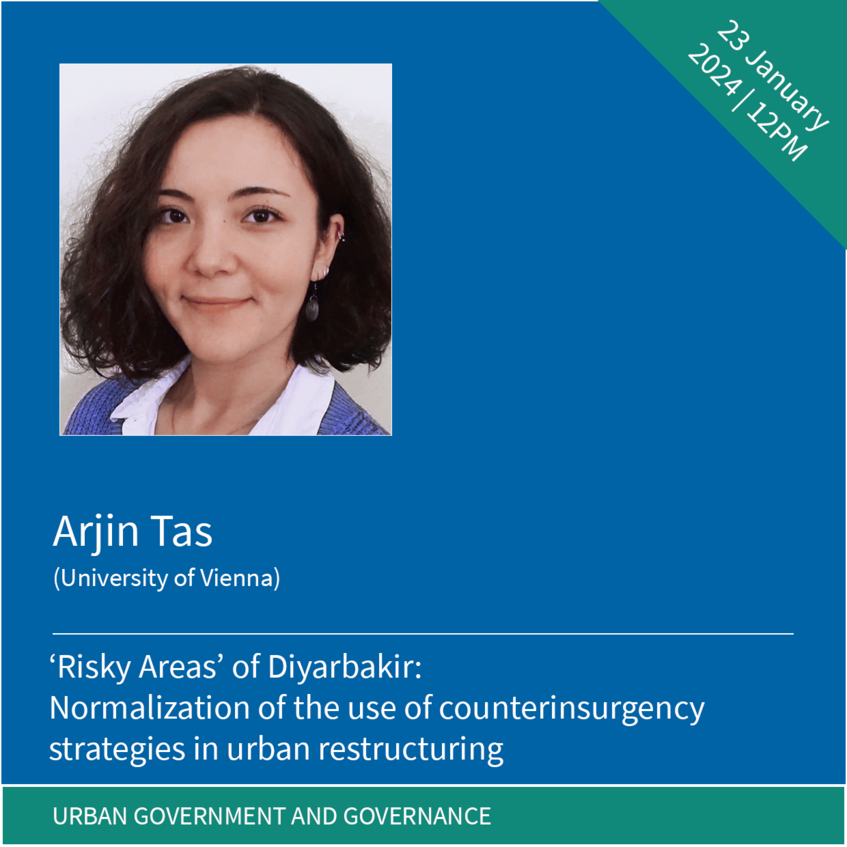
Joint BBL: Wednesday, November 15
Lucía Cobos
The configuration of Madrid as a socio-spatial order. A study of the variable geometries in four districts
Lucía Cobos is a PhD candidate at the Faculty of Political Science and Sociology of the Complutense University of Madrid. Her PhD is part of a project funded by the Ministry of Science and Innovation called: "Economic, social and political innovation in Madrid in the context of the (post)pandemic: strategies and territorial dimensions".
This contribution aims to investigate about the conformation of a socio-spatial order in the city of Madrid. Through the relationship between the spatial, politics and the political Lucía tries to show how the political subject is spatialized and what effects this spatialization has. In this way, she uses the concept of variable geometries to account for these effects in the case study of four districts of the city of Madrid: Arganzuela, Villaverde, Barajas and Latina.
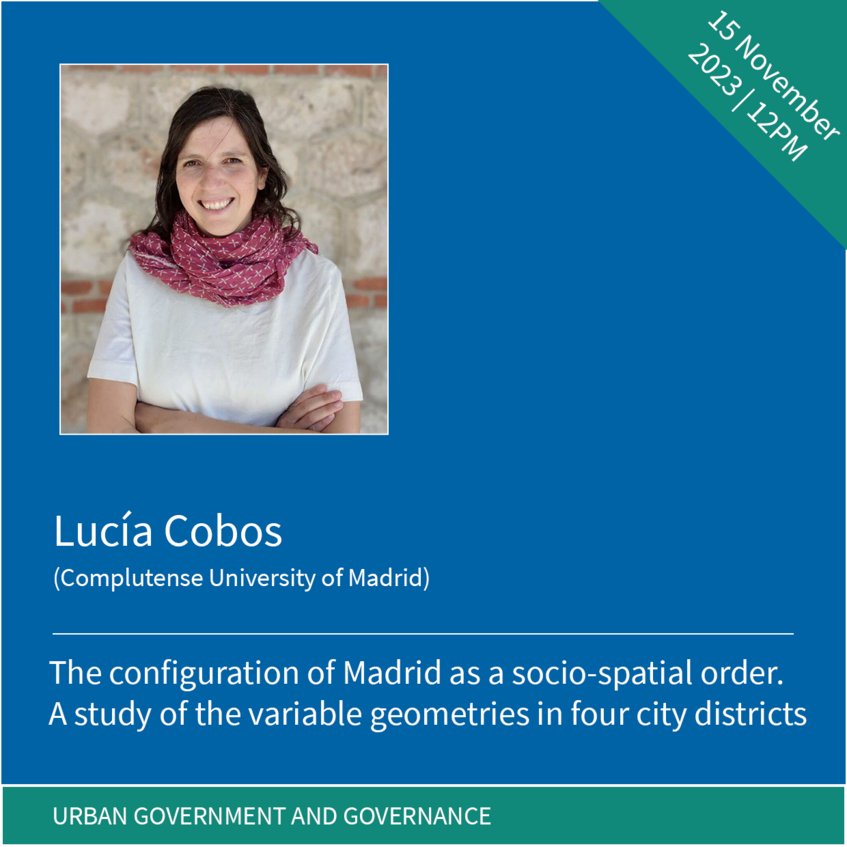
Melis Günay
Mobility in the making: Negotiation processes in neighborhood-level mobility experiments
Melis Günay is a doctoral researcher at the DFG-Research training group 2725 “Urban future-making: Professional agency across time and scale” at the HafenCity University Hamburg.
Her talk shares insights into a comparative case study analysis that investigates negotiation processes between civil society and public actors involved in neighborhood-level mobility experiments. The experiments under examination test a redistribution of street space and are increasingly implemented in German cities in order to advance mobility transformations that aim to reduce motorized private transport. The presentation identifies negotiation structures and strategies that emerge within these experiments and finally reflects on experimentation as a means of ‘making’ urban mobility.
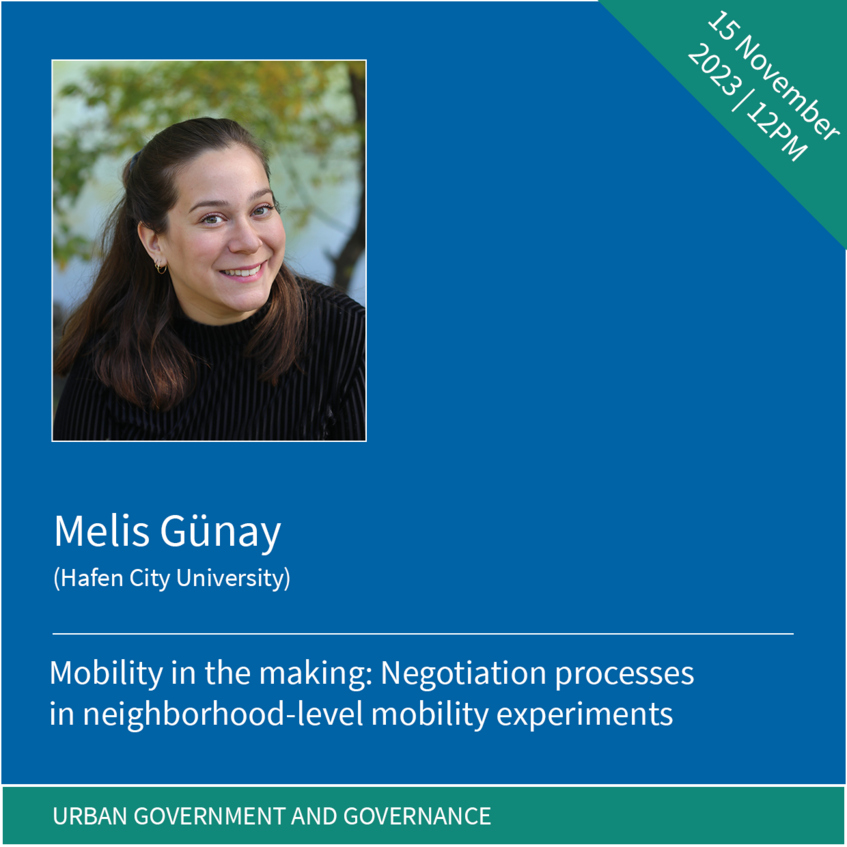
BBL: Tuesday, October 17
Ishita Dey
Of Adjustment and Placemaking: Ethnography of Migrant Journeys in India
17.10.2023, 12:15-1:30pm
Ishita Dey is Incoming Scholar at the Urban Futures platform. She is a Assistant Professor at the Department of Sociology of the South Asian University, Delhi.
Drawing on co-traveling experience in trains from Bhagalpur to Mumbai, Ishita will share her research on urban labour migration. She argues that in post-colonial times, railways are an essential part of Indian democratic politics and governance. Ultimately, this BBL asks how placemaking through objects, gestures, and movements informs migrant journeys.
C0628a - NIG, Universitätsstraße 7, 1010 Vienna (6th floor)
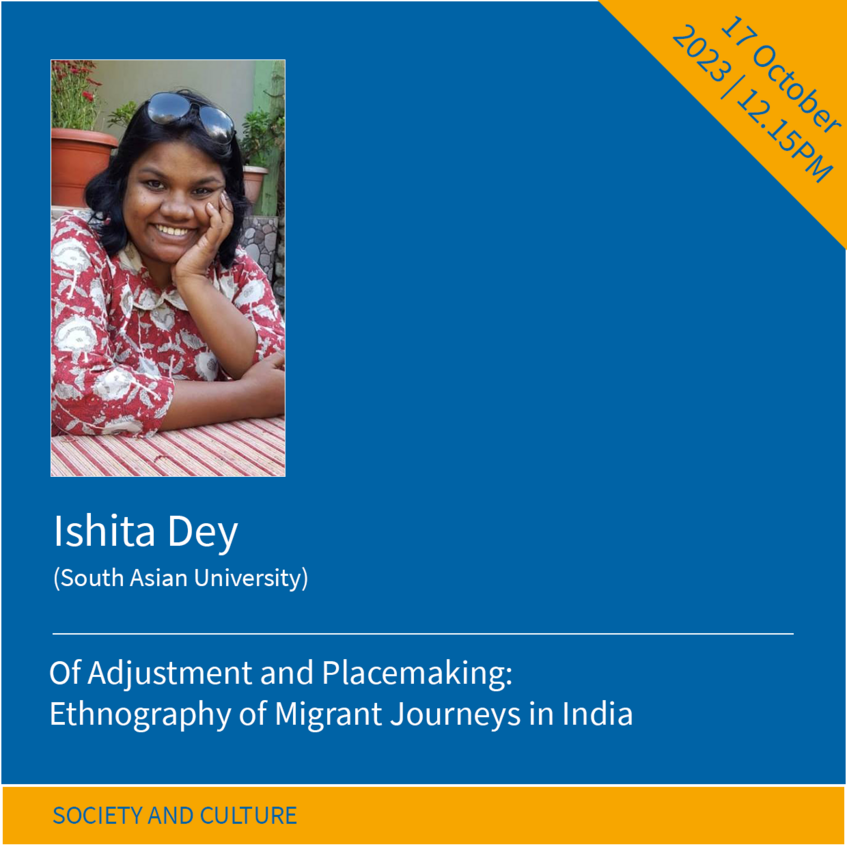
BBL: Wednesday, June 28
Ana Cukovic
Institutional efforts at migrant emplacement: role of philanthropy
28.06.2023, 1:15-2:45pm
Ana Cukovic is Research Affiliate at the Urban Futures platform. She is a PhD candidate in Anthropology at the University of Vienna, Austria.
Drawing on ethnographic fieldwork in Detroit, this talk analyzes the conditions by which local efforts at migrant inclusion take place. Building on evidence from interviews, document reviews, and discourse analysis, it investigates how migration comes to be viewed as part of 'urban revitalization' strategy within the larger framework led by philanthropy and growth elites. The talk ultimately asks: what is the role of private philanthropic organizations in shaping urban governance?
C0628a - NIG, Universitätsstraße 7, 1010 Vienna (6th floor)
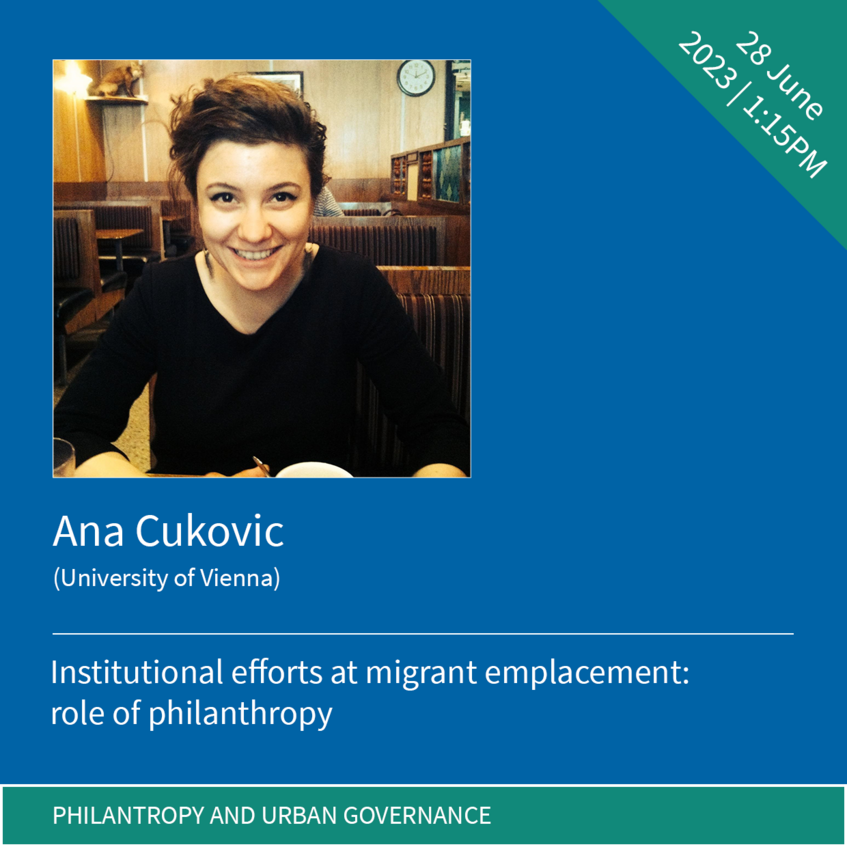
Kick Off BBL session: May 24
Eline de Jong
The logic of deservingness in social enterprises
24.05.2023, 12:00-1:30pm
Eline de Jong is Incoming Scholar at the Urban Futures platform. She is a PhD candidate in Sociology at the University of Antwerp, Belgium.
She will share some work-in-progress reflections based on her doctoral research on solidarity and deservingness in social enterprises, for which she conducts ethnographic fieldwork and interviews with third sector organizations working with and for people with a migration background.
C0628a - NIG, Universitätsstraße 7, 1010 Vienna (6th floor)
